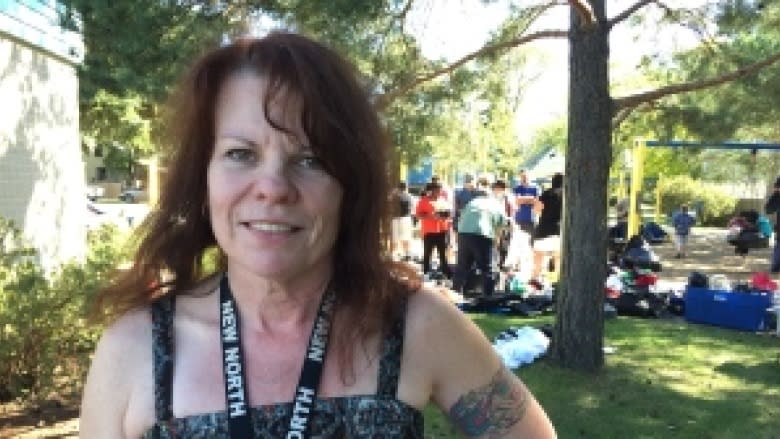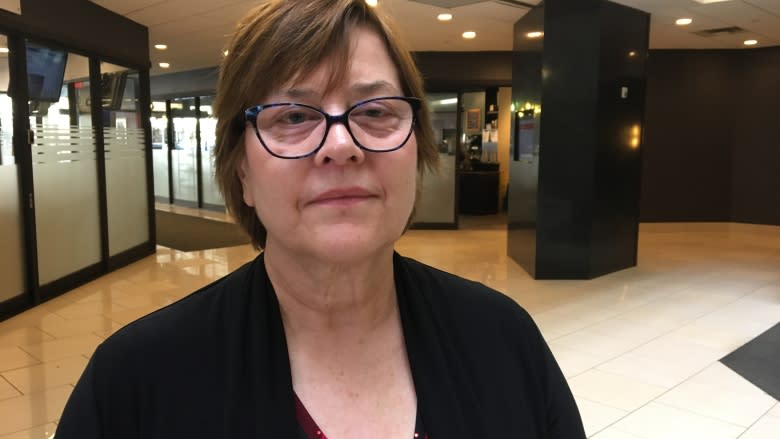Van de Vorst family outraged after drunk driver Catherine McKay sent to healing lodge
The lawyer for a drunk driver who killed a family of four in Saskatoon last year has defended alternative justice measures after the bereaved family expressed outrage that the driver was no longer in a penitentiary.
In January, Catherine McKay received a sentence of 10 years for killing Chanda and Jordan Van de Vorst and their children, Kamryn and Miguire, while she was driving impaired.
McKay, 49, pleaded guilty to four counts of impaired driving causing death in June 2016.
In January 2016, she failed to halt at a stop sign and collided with another car carrying the Van de Vorst family. She had a blood-alcohol level three times the legal limit.
Jordan's father, Lou Van de Vorst, expressed outrage this week after McKay was transferred to a healing lodge for Indigenous women one month after she received her sentence.
"We're hurt. We're angry. We're upset," said Van de Vorst. "To me the punishment doesn't fit the crime. Something's not right there."
Rehabilitation the goal
McKay's lawyer, Leslie Sullivan, said the sentence was the most severe in Saskatchewan history and one of the most severe in Canada.
She said healing lodges and other alternative justice measures make society safer.
"Inmates eventually are released back into the community. Therefore, one of the goals is they be rehabilitated," Sullivan said.
"Any form of healing, rehabilitation process, restorative justice process that assists in that goal is a good thing."
Programs still a prison, says lawyer
Sullivan said victims' families might feel differently if they knew exactly what healing lodges and other facilities are like.
She said they're still prisons, and some say the intensive programs and therapy can be more daunting than serving time in a penitentiary.
Sullivan, who is an advocate for zero tolerance of drinking and driving, said these measures are not appropriate for all inmates. Some are not yet ready to be placed in lower security situations.
Senator Kim Pate, the former executive director of the Canadian Association of Elizabeth Fry Societies, also said a healing lodge is still considered a prison.
"It's supposed to look at particular issues faced by Indigenous prisoners and allow an opportunity for them to deal with issues that have led to them being criminalized," said Pate to CBC Radio One's Afternoon Edition.
There are currently nine correctional service healing lodges across the country, with three located in Saskatchewan. The minimum to medium security facility for women is located in Maple Creek, Sask.
She said the healing lodge focuses on Indigenous culture, teachings and ceremonies while also holding people accountable in hopes that they can become rehabilitated and repay their debt to the community.
Meanwhile, Van de Vorst worries the quick transition to the healing lodge sends the wrong message at a time when the Saskatchewan government is trying to curb drinking and driving.
"There has to be consequence enough to make people think twice about what their attitude is towards driving," he said.
Tougher rules since crash
In the year since the crash, Van de Vorst has spoken out a number of times in an effort to change the drinking and driving culture in Saskatchewan and across Canada.
In October last year, the Saskatchewan government announced it was introducing new laws to crack down on drunk drivers.
The new rules, which came into effect on Jan. 1, 2017, include tougher penalties and vehicle seizures for first-time offences.
Van de Vorst said last year that tougher rules were just the start.
Drinking and driving rates highest in Saskatchewan
"I really hate the fact that it's such a problem," he said, calling the issue of impaired driving a Canadian issue, not limited to just Saskatchewan.
According to Statistics Canada, Saskatchewan led the provinces in its impaired driving rate in 2015.
The province had 575 impaired driving incidents per 100,000 people reported by police that year.
By comparison, Alberta's rate, the second-highest, was 314 per 100,000 people.
Rates of impaired driving in Regina and Saskatoon were third and sixth highest in the country respectively.



